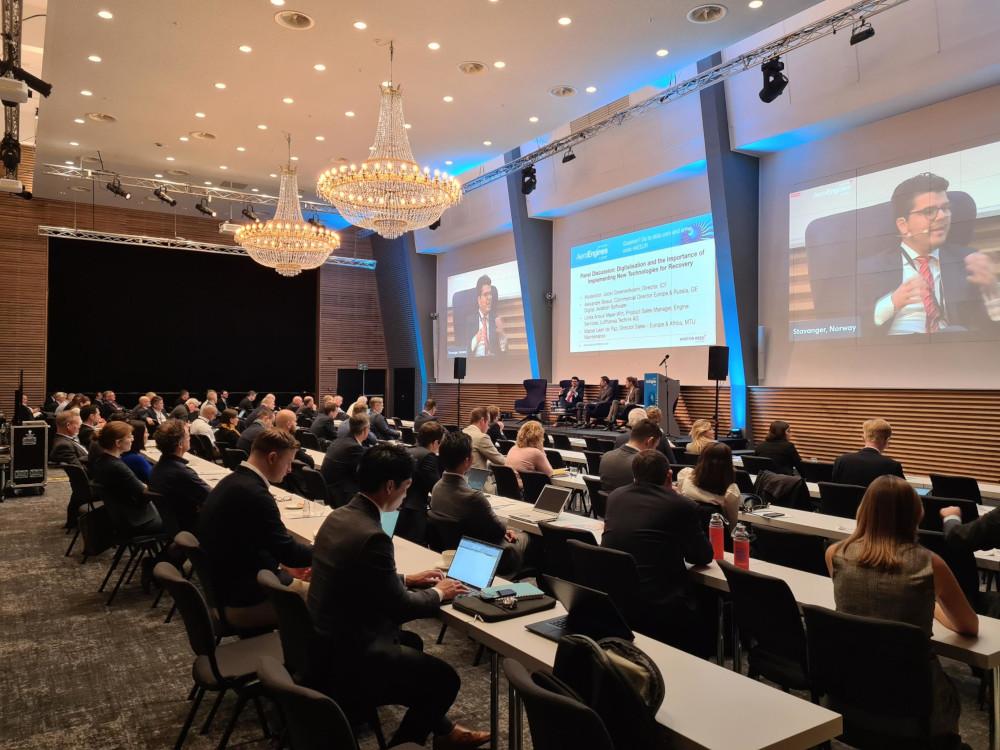
This week saw Aviation Week embark on the charming city of Stavanger in Norway at a cold but very festive time of the year for its Aero Engines Europe conference.
The energy of live events has been sorely missed over what is amazingly nearing two years since the start of COVID-19. While the wonders of Zoom, Microsoft Teams and other video platforms have connected the world over that period, nothing beats face to face meetings--something I enthusiastically reacquainted myself with this week in both the conference room and the bar.
Of course, the focus of the conference was the engine aftermarket, and it is certainly a segment that is undergoing changes as it readies for a recovery. One of the most adversely hit MRO sectors at the height of the crisis in 2020, the moderate uptick in the engine market this year has been welcomed but challenges persist. For instance, engine shop visits are still below what they were pre-crisis, owing to delayed maintenance and other factors such as airline penchant for green-time engines.
Ever the innovators, engine shops have looked at new product lines and services to fill these gaps. Certainly, the cargo segment continues to be a useful revenue stream, as detailed by Aero Norway, which unexpectedly saw a buoyant market for the CFM56-3 from freighter operators since early 2020.
In the absence of full overhauls, more bespoke services such as hospital shop visits and quick-turn engine maintenance have grown in demand. From an operational standpoint, MROs are also drawing more than ever before on tried and tested Kaizen Lean practices. Flexibility is a key word, with companies moving around people, tooling and equipment in order to accommodate these more bespoke customer demands.
While service innovation and new technologies were frequently discussed, a major hurdle to overcome for the industry is people related. COVID-19 has led to a mini-exodus from the industry with the workforce being poached by other industries at increasing volumes compared to before the crisis. Helping to reshape the image of aviation and the role of a technician, along with embracing and promoting new technologies, were suggested as possible solutions to workforce concerns.
Supply chain disruptions remain problematic, albeit as Marcelo Riso, global aerospace product manager at Kuehne + Nagel pointed out during a panel on supply chain collaboration, issues existed before COVID-19. The crisis has exacerbated them and forced the industry to accelerate some of its digitalization plans. It was the belief of the panel that a more data-driven and hopefully collaborative supply chain network is on the horizon as a means of offsetting future crises, albeit dependent on a few hurdles that need to be overcome.
While evergreen issues related to capacity, asset values and used serviceable material supply were regularly bought up, some newer topics are also noticeably being discussed at greater lengths. Sustainability will certainly be a staple topic of future events, reflecting the wider industry’s initiatives and goals to build a more environmentally friendly and less wasteful aftermarket.
An in-depth analysis of Aero Engines Europe will appear on AviationWeek.com next week.
